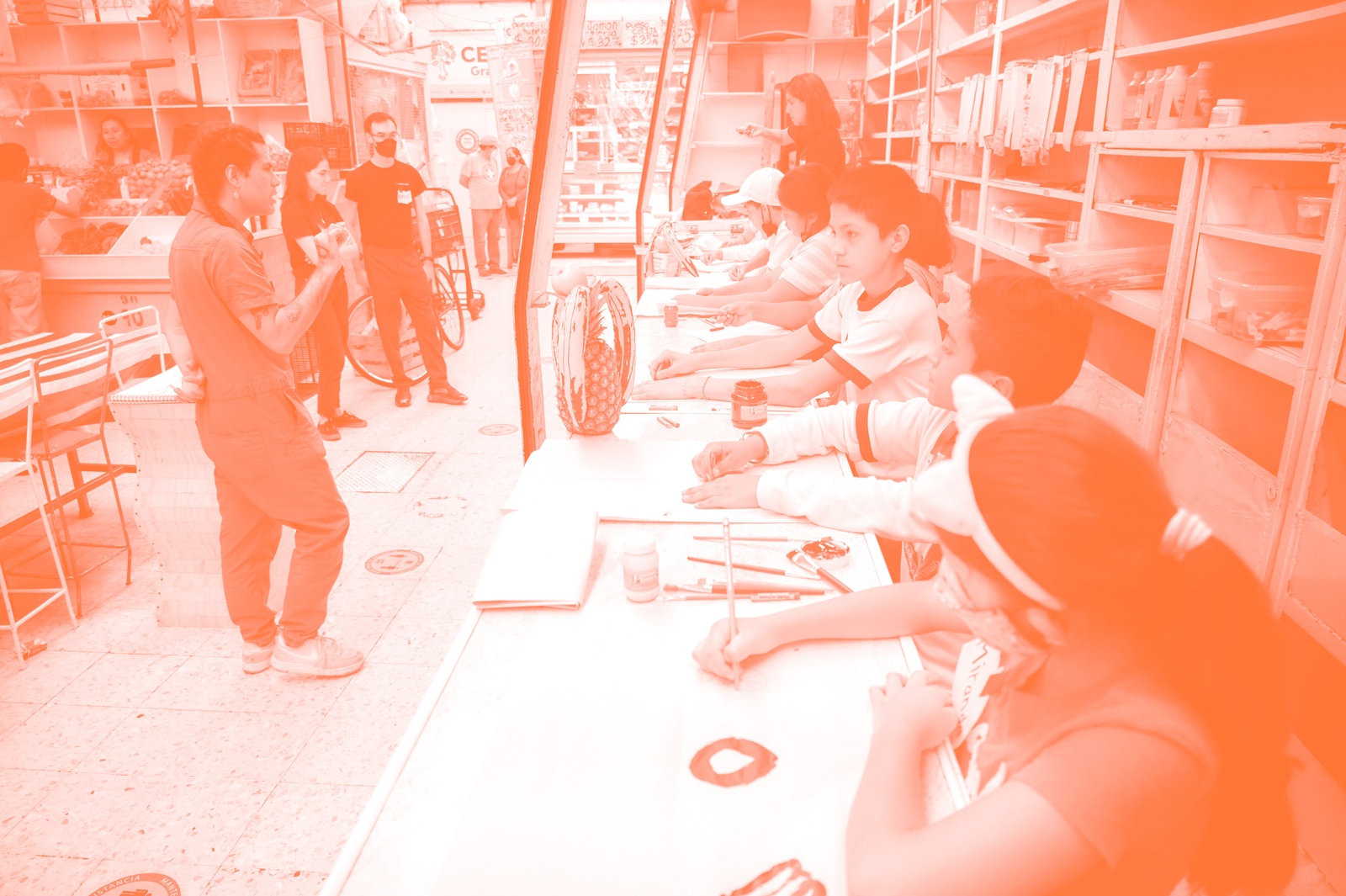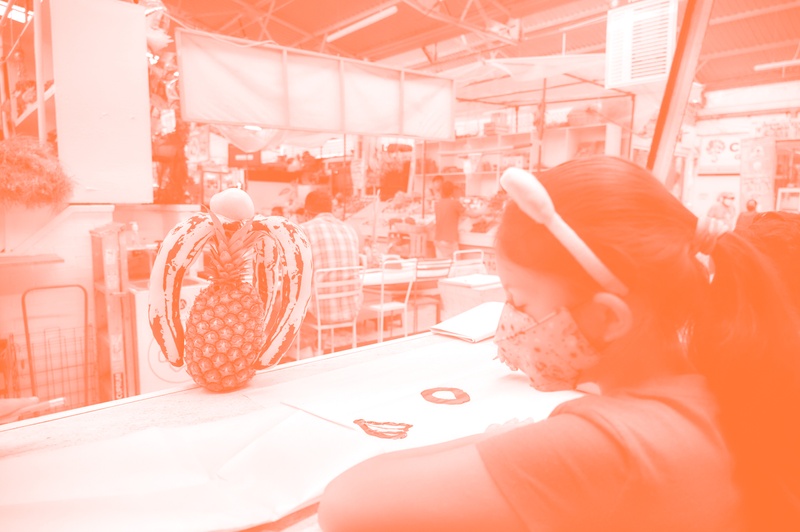As part of the project Museos en común, a series of lectures, panels and workshops invite national and international voices to discuss the “common”, and their experiences in linking communities with cultural practices. The public program is based on four axes: What is common? Common Places, Common Actors and Common Learning and Knowledge.
In this first axis, the concept of the “common” is discussed through the research and experiences of Silvia Federici, Keyna Eleison, Gia Enríquez, Tonatiuh López and Antonio Barrientos and how it is applied in their different practices.
THURSDAY | 13.OCT.2022
5:30 PM | Introduction Museos en común: Mercado Granada
Marielsa Castro Vizcarra, Associate Curator Museo Jumex
6 PM | Conference | Via zoom in the exhibition
Silvia Federici (Italy-USA), writer, professor, and activist
FRIDAY | 14.OCT.2022
12 PM | Panel
Keyna Eleison (Brazil), Artistic Co-Director of Museu de Arte Moderna do Rio
de Janeiro; Gia Enriquez (Peru-USA), Community Organizer, Queens Museum; Tonatiuh López and Antonio Barrientos (Mexico), members of Museo Arte Contemporáneo Ecatepec (MarCE)
Moderated by Marielsa Castro Vizcarra, Associate Curator of Museo Jumex
Silvia Federici
Originally from Italy, Federici has lived in the United States since 1967, and is Professor Emeritus at Hofstra University in New York. In the sixties she participated in the student movement and against the war. In the 1970s she joined the feminist movement with a class perspective. She was also part of the international Wages for Housework campaign. In the following decade she worked as a teacher in Nigeria, an experience that influenced her work, since there she witnessed the offensive of the oil companies and the International Monetary Fund against commons lands and the education system. Both themes converge in his work. The book Caliban and the Witch. Women, the Body and Primitive Accumulation (2004) is already a classic for new generations of feminists.
Keyna Eleison
Curator, writer, researcher, griot and shamanic heiress, storyteller, singer, and ancestral chronicler Eleison holds a master’s degree in Art history and a bachelor’s degree in Philosophy. She is a member of the African Heritage Commission for the Cais do Valongo region as a World Heritage Site (UNESCO). She was curator of the 10ª Bienal Internacional de Arte SIART, in Bolivia; and of the publication of the Liverpool Biennial 2020/2021 together with Manuela Moscoso. She is currently chronicler of Contemporary & Latin America magazine, professor of the Programa de Enseñanza Libre of the Visual Arts School of Parque Lage, Rio de Janeiro, curator of the Bienal das Amazônias with Sandra Benites and Vania Leal, and artistic director of the Museu de Arte Moderna de Rio de Janeiro with Pablo Lafuente.
Silvia Federici
Originally from Italy, Federici has lived in the United States since 1967, and is Professor Emeritus at Hofstra University in New York. In the sixties she participated in the student movement and against the war. In the 1970s she joined the feminist movement with a class perspective. She was also part of the international Wages for Housework campaign. In the following decade she worked as a teacher in Nigeria, an experience that influenced her work, since there she witnessed the offensive of the oil companies and the International Monetary Fund against commons lands and the education system. Both themes converge in his work. The book Caliban and the Witch. Women, the Body and Primitive Accumulation (2004) is already a classic for new generations of feminists.





















